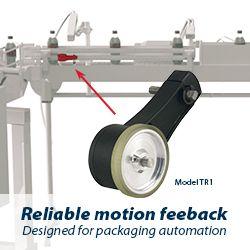Horizon Energy Systems Announces New 700Wh/kg Fuel Cell for Drones
The company will officially unveil the new solid chemical AEROPAK-S at the May 3-7 AUVSI trade show in Atlanta, Georgia (booth 401) along with other innovations.
SINGAPORE--Singaporean company Horizon Energy Systems (HES) announced a breakthrough on-demand hydrogen generation technology based on a solid fuel system, further improving the flight endurance of small fuel cell electric drones. The unique ability to perform long endurance missions with a low-altitude mini-UAV provides considerable new benefits in border patrol, infrastructure surveillance, exploration, critical asset and environmental monitoring.
The company will officially unveil the new solid chemical AEROPAK-S at the May 3-7 AUVSI trade show in Atlanta, Georgia (booth 401) along with other innovations.
"The new AEROPAK-S is the result of years of effort in simplifying what are typically complex systems and making them easy to deploy," said Taras Wankewycz, HES Chief Executive Officer. "We have explored a number of feedstock options through the years and our new system trumps them all on performance, safety and scalability in manufacturing."
The new 700Wh/kg solid fuel AEROPAK-S completely eliminates the need for a complex catalytic reactor, which reduces size, weight and complexity, while offering a self-contained, plug & play fuel cartridge system.
AEROPAK-S has already powered a commercial mini-UAV flight earlier this year. Custom versions of the system have been in stealth development with several leading aerospace OEMs, some of which are moving to serial production in the coming months.
Numerous industry experts acknowledged HES ultra-light fuel cells as a potent power solution for small UAS platforms. While the companys visibility has mostly been in the fixed-wing segment, it expects to set a new world flight duration record in the multi-rotor segment in the coming weeks.
About Horizon Energy Systems www.hes.sg
Headquartered in Singapore, HES deliver the worlds highest performance fuel cells, achieving orders of magnitude beyond what is possible elsewhere today. Where battery performance limits the effective use of these promising unmanned systems, HES next-generation fuel cell systems improve versatility and open new mission possibilities for smaller low altitude aircraft, typically reserved for larger, higher altitude and more expensive aircraft.
Featured Product

